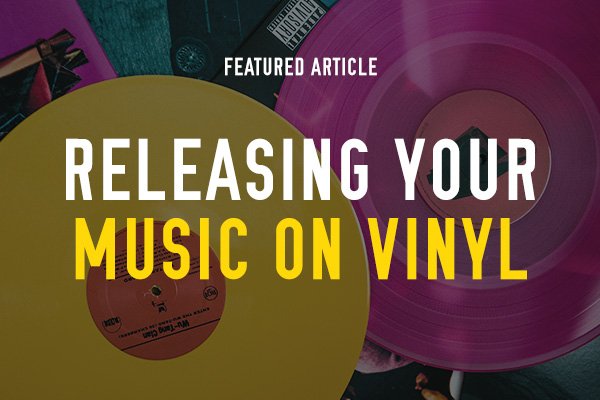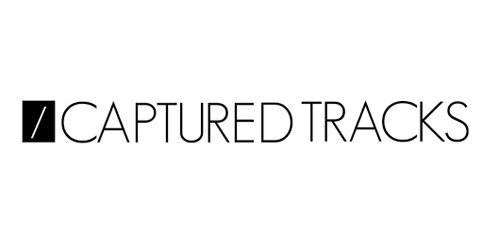
What Does a
Record Label
Actually Do?
Examining the Traditional Roles and Responsibilities of Record Labels

Record labels can be pivotal in shaping the careers of artists.
But what exactly do record labels do?
From discovering and nurturing talent to managing the intricacies of production, marketing, distribution, and more, record labels serve as vital pillars of support for artists seeking to make their mark.
Let’s dive into the multifaceted world of record labels, uncovering their diverse roles and responsibilities that go beyond just signing artists. Plus, we’ll look at what roles record labels may not have to worry about!
Of course, today’s modern indie labels are unique and can break any of the “old ways” of doing things…
However, it can be helpful to look at each category through the lens of selling records…
A record label’s primary job is to help artists find new listeners and earn a living!
Recording
An independent record label should play a crucial role in an artist's recording process by providing support, resources, and guidance. The label can offer creative input, contribute to the production costs, and coordinate schedules.
The same can be said for mixing and mastering.
By involving themselves in these stages, the record label aims to deliver a polished and sonically impressive product that aligns with the artist's creative vision.
However, these days, a lot of artists are home-recording and delivering a finished product to their record label!
Manufacturing and Distribution
An indie record label plays a significant role in the manufacturing and distribution process of an artist's music. They are generally responsible for coordinating the production of physical copies of albums, such as CDs, vinyl records, or cassettes, including overseeing the design of album artwork and packaging.
The label may work with manufacturing plants or services to ensure the timely and high-quality production of these physical formats.
Distribution is also a common role record labels will take on, not just digital distribution, but also physical distribution to indie record stores, etc.
Marketing (PR, playlisting, social media).
A record label has a crucial role and various responsibilities in marketing an artist's music. They are responsible for developing and executing marketing strategies to increase awareness, generate buzz, and attract a larger audience.
This includes utilizing social media platforms effectively to engage with fans, promote the artist's music and upcoming releases, and build a strong online presence.
Additionally, the label plays a role in public relations (PR) by reaching out to press outlets, blogs, and music journalists to secure media coverage, interviews, and reviews. They may coordinate press releases, organize media appearances, and manage any publicity campaigns surrounding the artist's music.
Another important aspect of marketing is playlisting, especially in the streaming era.
Managing Finances
One of the important responsibilities of a record label is to manage the financial aspects surrounding an artist's release.
From the recording process to marketing and distribution, record labels allocate and oversee the funds necessary to bring an artist's music to the market. They handle budgeting, ensuring that the recording sessions, production costs, and promotional efforts stay within the agreed-upon financial parameters.
Additionally, record labels manage the accounting and financial aspects of the artist's project, including tracking sales, collecting and distributing royalties, and handling any licensing agreements.
Artist Development
As an indie record label, one of the key responsibilities is to advise and coach young artists, aiding in the development of their craft and their overall career.
Recognizing the potential and talent of emerging artists, indie labels provide invaluable guidance and mentorship throughout their journey.
A record label can assist in strategic career planning, providing advice on industry trends, networking opportunities, and navigating the music landscape.
Radio
In the dynamic world of radio, including the influential realm of college radio, indie labels play a pivotal role in promoting and securing airplay for their artists.
First and foremost, indie labels engage in radio promotion by actively pitching their artists' songs to radio stations, program directors, and DJs. Gone are the days of payola at major FM stations, but labels still have the opportunity to build relationships with station managers at smaller indie stations and at college radio.
Merch
In terms of selling the merchandise, the record label may handle various aspects, including setting up an online store on the artist's website or a dedicated merch platform, managing inventory and stock levels, fulfilling orders, and handling customer service inquiries related to merchandise purchases.
It's worth noting that the level of involvement of the record label in merchandising can vary. Some labels only get involved with merch when it’s bundled with a new album release! The specifics depend on the size, resources, and capabilities of the label and the specific agreements between the label and the artist.
Publishing and Sync Licensing
Managing an artist's publishing is typically not the direct responsibility of a record label. While record labels focus on the commercial exploitation of an artist's recorded music, publishing deals with the ownership and administration of the underlying musical compositions and lyrics is generally handled by a publisher or publishing admin.
However, record labels do play a vital role in securing synchronization (sync) licensing opportunities for artists' music in movies and TV shows. They actively collaborate with music supervisors, production companies, and licensing agencies to pitch the artist's songs for potential placements.
Touring (Booking Shows)
The involvement of an independent record label in an artist's live show and touring plans can vary based on the specific agreement between the artist and the label.
The label may actively participate in coordinating and organizing tour dates, securing venues, and handling logistical aspects such as travel arrangements and accommodations. They may also provide financial support, promotional assistance, and connect the artist with booking agents and tour managers.
However, some independent labels may have limited resources and focus primarily on the recording and distribution aspects, leaving the artist more responsible for managing their live performances and touring endeavors independently or with the help of a separate team.
Artist Management
While it is not a requirement, it is generally recommended for an artist to have their own manager separate from their record label. The roles of a record label and an artist manager are distinct and serve different functions.
A record label primarily focuses on the business aspects of an artist's career, such as recording, distribution, marketing, and promotion. They provide resources, support, and expertise in these areas. However, their primary goal is to maximize the commercial success of the artist's music and generate revenue for the label.
On the other hand, an artist manager's role is to represent and advocate for the artist's best interests across all aspects of their career. They provide guidance, strategic planning, and support in areas such as career development, branding, live performances, booking, and overall artist management. They work closely with the artist, often serving as a trusted advisor and liaison between the artist and various industry professionals.

WATCH THE EPISODE
So what exactly does a record label do?

RECORD LABEL
ACADEMY
The Complete A to Z of Building and Growing an Independent Record Label.
Helpful Articles for Record Labels
Other Record Labels Podcast
Featuring interviews with…






















